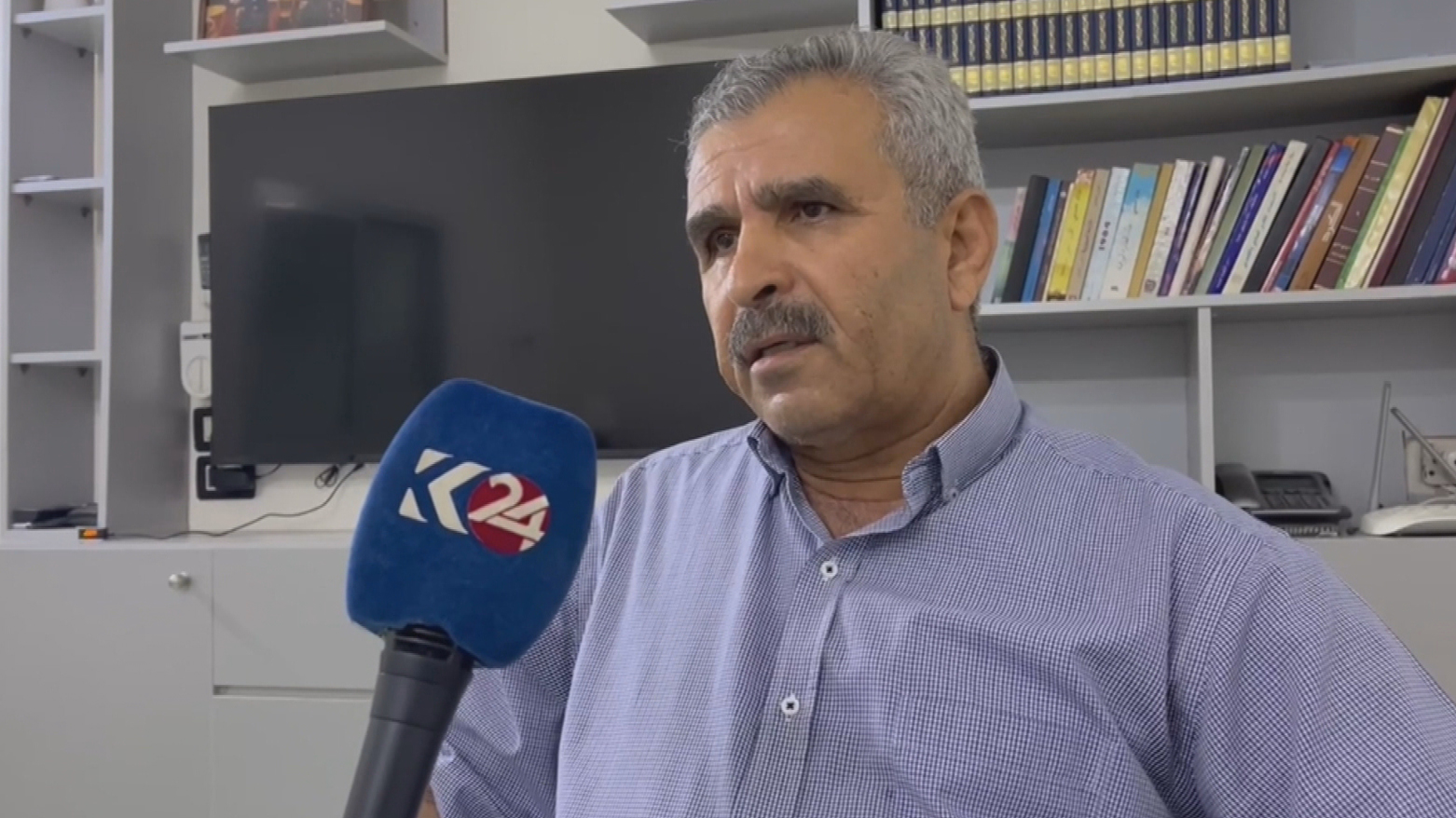Words Without Implemented Decisions: Kurdistan24 Obtains KNCS Reaction to Syrian Dialogue Offer
KNCS reacts to Syrian dialogue offer, says President al-Sharaa’s words must become "implemented decisions," not just rhetoric. The caution follows a judicial decree that removed Kurdish judges from Afrin, raising concerns over systematic marginalization.

ERBIL (Kurdistan 24) – A senior representative of the Kurdish National Council in Syria (KNCS) has cautioned that the Syrian government’s recent statements on dialogue with Kurds and Druze must be translated into practical steps rather than remaining rhetorical gestures.
The remarks reflect both guarded optimism and persistent skepticism following comments by Syrian Transitional President Ahmad al-Sharaa, who signaled willingness for dialogue with minority communities as part of his broader strategy to stabilize the country after the fall of Bashar al-Assad’s regime.
Abdulkarim Omer, a political analyst, told Kurdistan24’s correspondent Anwar Abdul-Latif that President Sharaa has publicly declared his administration is prepared to engage in talks with both the Kurds and Druze.
“The Syrian president said they are now entering a stage of assessment of the past period and that a specific dialogue on this matter must be held within the framework of Syria’s unity,” Omer explained.
In his latest statements, Sharaa underscored his goal of strengthening political stability in Suwayda and eastern Euphrates while expressing readiness for dialogue with Kurdish and Druze representatives.
Luqman Suleiman, KNCS representative in Damascus, emphasized that while Sharaa has made multiple public remarks, they remain at the level of political discourse rather than actionable commitments.
“The Syrian president has given many statements, which are important steps toward the right direction,” Suleiman said. “But they have not yet reached the stage of fundamental solutions. The changes are tied to official state institutions, and Sharaa’s words remain words without an implemented decision.”
Political commentators argue that the coming phase may witness the launch of direct negotiations between Damascus and both Kurdish and Druze components. Such a move, they believe, could foster a new understanding aimed at easing tensions and opening a path toward genuine national reconciliation.
These developments come against the backdrop of recent judicial changes that have stirred deep concern among Kurdish communities in northern Syria.
The Syrian Ministry of Justice issued decree No. 1479, accompanied by administrative order No. 412722 obtained by Kurdistan 24, which reshuffled Afrin’s judicial institutions and removed most Kurdish staff.
Judges and clerks were transferred en masse to Aleppo and surrounding districts, while Arab officials were appointed in their place. Only a handful of Kurdish employees remain in Afrin, confined to clerical or non-decision-making positions such as registry and copying.
Observers argue that the measures entrench a policy of systematic administrative Arabization, stripping Afrin’s judiciary of Kurdish presence and authority.
Legal experts underline that Afrin’s judicial system had long served as the only legal mechanism for Kurdish citizens to reclaim homes seized during resettlement campaigns after Turkey’s Operation Olive Branch and subsequent conflicts.
According to documents reviewed by Kurdistan 24, the only rulings consistently enforced are those restoring houses to Kurdish owners when they were unlawfully seized by Arab settlers. However, if Kurdish property has already been resettled by Arab families, the courts deny restoration, leaving displaced Kurds unable to recover their rights.
The overhaul has amplified fears that Kurdish displacement in Afrin could become permanent, reinforcing demographic changes imposed over the past decade.
Analysts suggest that President Sharaa’s recent outreach to Kurds and Druze may represent a political recalibration in Damascus’ approach to long-neglected minority questions. Yet, the Afrin judicial decree reveals the contradictions between official rhetoric and administrative reality.
For the people of Afrin and Suwayda, the true test will be whether dialogue evolves into concrete policies—restoring rights, ending systematic marginalization, and ensuring genuine equality within a unified Syria.
